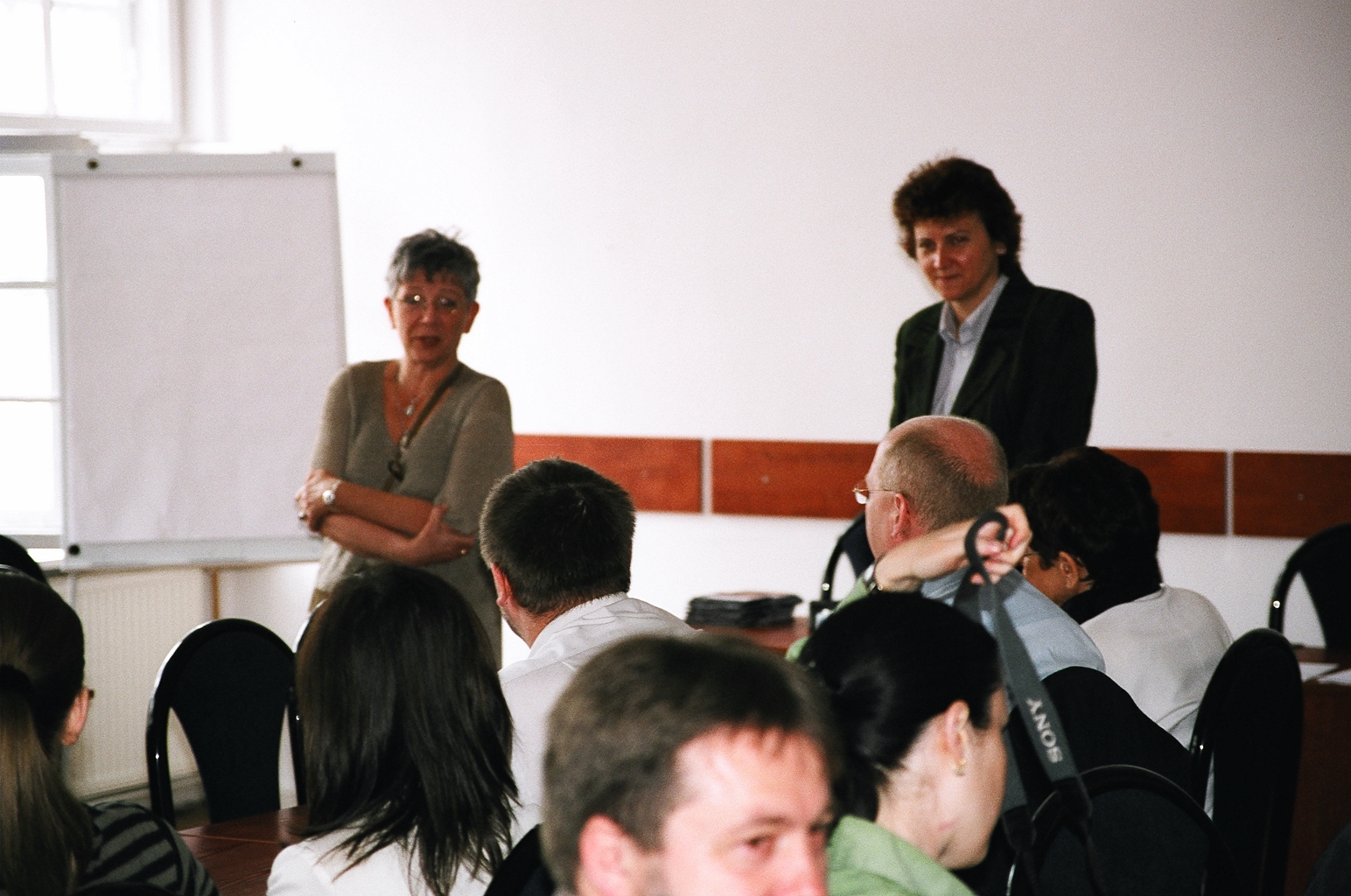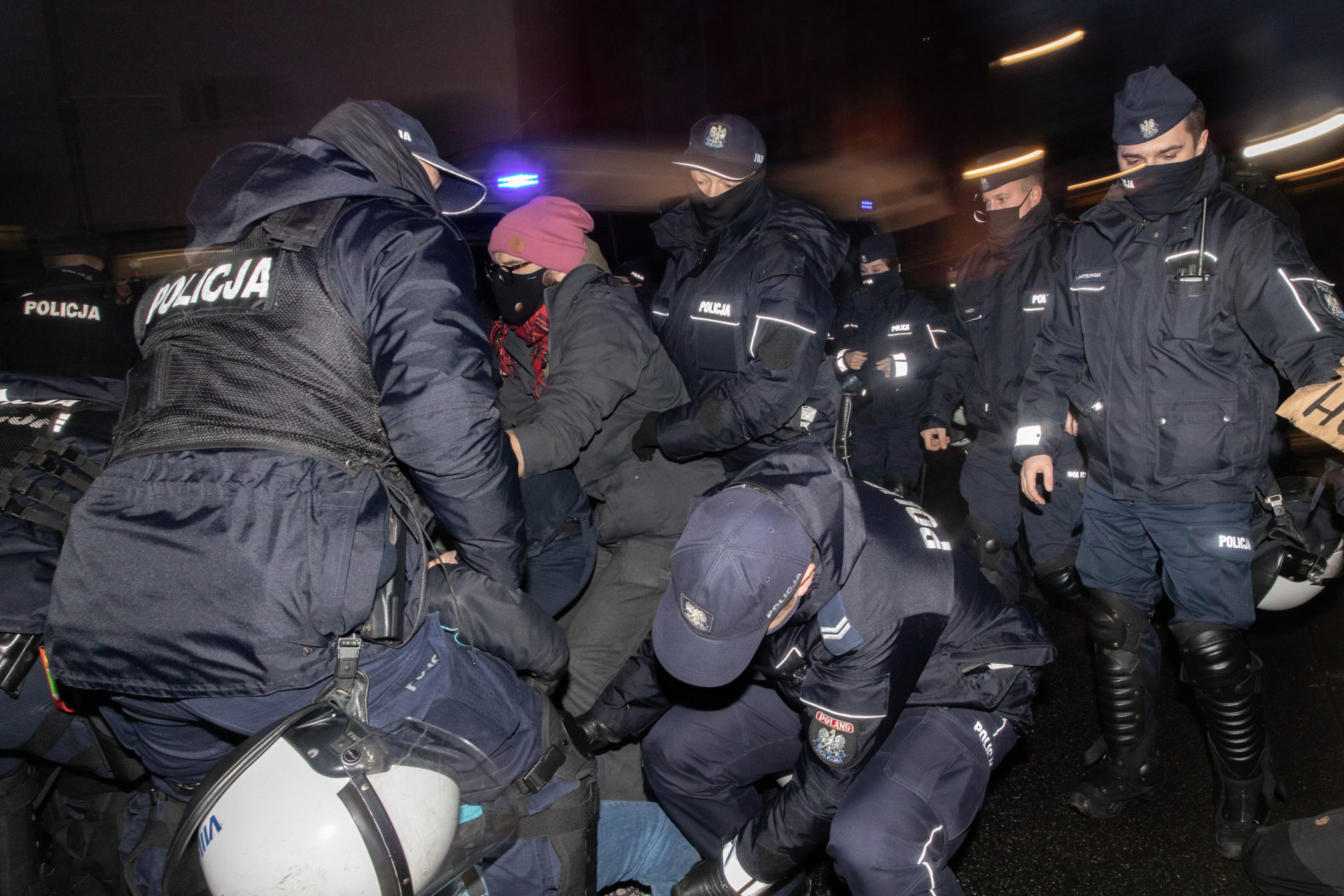Human Rights House Foundation spoke with Polish human rights defender Danuta Przywara about the ongoing rule of law crisis in Poland, and the need to continue fighting populism and defend human rights and freedoms. Przywara, Polish sociologist and Chair of the Council at the Warsaw-based Helsinki Foundation for Human Rights, a member of the network of Human Rights Houses.
Any success in the fight against populists should not make us complacent. It is necessary to constantly check the functioning of checks and balances of the democratic system and to respond to even the smallest irregularity in their operation.
The Law and Justice party (PiS) coming to power in 2005 for the first time was a very clear sign of an imminent threat to democracy. Unfortunately, we were made complacent by the fact that we managed to easily and quickly stop them from putting their destructive ideas into practice, coupled with their resignation after just two years in power.
We were, in fact, so complacent that we, civil society included, failed to predict PiS rebuilding their political strength around the Smolensk tragedy. At the time, we all had the feeling that it was inappropriate to attack too harshly the actions of the party led by a brother in mourning.
I also think that we believed too hastily in the strength of Polish society’s commitment to the EU and democratic values, and that we thought this would prove a sufficient barrier to further destructive actions by non-democrats.
Evidently, this was not the case and the pace and magnitude of the changes introduced by the faction that came to power again in 2015 were immense and unexpected. After the first attack dismantling the basic safeguards of the system, the authorities carried on, at the same time fulfilling social promises and appeasing the sceptical and/or disillusioned part of the population.
All that allowed for further democratic backsliding.
I do, however, firmly believe that Polish society harbours the enormous potential for reversing unfavourable trends and that the peaceful transformation of the 1990s is a factor that still makes this a reality. I have seen Poland’s potential for enormous transformation several times in my lifetime as a human rights defender.
For summary and ease of reference, I will divide this transformation into four periods, each of which holds a different situation for human rights and freedoms.
The socialist system in Poland: 1950s – 1989/90
The opening up to the West in the 1970s and the periods of “thaw” contributed to Poland being half-jokingly, but also somewhat truthfully, described as “the cheeriest barrack in the socialist camp”.
The socialist period spanned 30 years and was very diverse. It includes the era of Stalinist terror, the post-1956 “thaw” in Poland, the subsequent “screw-tightening” in the 1960s, the flirting with the West in the early 1970s, the signing of the CSCE Final Document in 1975 and the first “Solidarity carnival” in 1980/81, as well as the exceptionally bleak period of martial law in 1982-1988.
This first period was generally characterised by the authorities taking social rights fairly seriously while awarding only a very superficial recognition of personal, civil and political rights.
In the 1970s, there was an emergence of a more organised pro-democracy opposition (KOR, ROPCIO, KSS KOR, KPN and other organisations). It was also a time characterised by a relatively strong trade union, pro-democracy and pro-human rights underground. The latter limb of the anti-regime movement invoked not only the provisions of the then-Constitution but also the International Covenants on Human Rights ratified by Poland and openly sought support from international organisations (UN, CSCE/OSCE).
During the “thaw”, or liberalisation, periods, and especially during the so-called “Solidarity carnival” of 1980-81, the attitude of the authorities to the exercise of these rights was relatively permissive, for a socialist system. These “thaws” allowed the active pro-democratic part of the population to get a taste of life in at least a semblance of a state respecting human rights and freedoms. This made it all the more difficult to come to terms with the loss of even that semblance. There was something to yearn for, something to demand, even at the cost of repression.
This period, diverse as it was, ends with martial law, a very restrictive period for human rights.
Political transformation: 1989/90 – 2003/2004
From 1989/90, an era of rapid political transformation gripped the country: Poland’s successive accession to intergovernmental organisations (Council of Europe, NATO, and finally the European Union). It was a period of rapid progress in the protection of human rights in the country.
There was a high level of consensus among all social actors on the direction of change which favoured the adoption and ratification of successive instruments of international law on human rights and freedoms. This was also the time of the drafting and adoption of the new Constitution in 1997.
This was a time when human rights were in vogue in Poland, and especially those rights that had been most severely violated in previous years.
Successive governments tried to adapt Polish law to meet international standards as quickly and efficiently as possible in order to meet the requirements of the Council of Europe, NATO and the EU.
It could be said that the authorities, at various levels, made considerable effort to ensure that respect for human rights was reflected in the practice of its officials. This does not mean, of course, that human rights violations did not occur. This was, after all, a completely new area for many officials and functionaries of the law enforcement agencies, evoking some resistance.
Regrettably, this period also saw a significant decline in the public perception of, and actual concern for, social rights. Consequently, large groups of people paid a very high price for the introduced reforms.
Poland’s first decade as an EU member state: 2004-2015
This third period was a time of stability. Poland was a member of the European Union. Mission accomplished. This means that our political system, the laws in force and the practice of applying them were recognised as fulfilling the minimum conditions for Poland’s accession.
Of course, this does not mean that there was nothing left to improve, change or refine. No country in the world has a perfect record of protecting human rights and freedoms.
Metaphorically speaking, we could say that while in the previous period we furnished our dream home, in this period we busied ourselves with maintaining and raising the standard of those furnishings.
The relationship between the government and human rights defenders or, more broadly, civil society organisations was changing. It was becoming increasingly formalised and regulated by accepted procedures, laws, standards, and rules.
This metaphor applies both to the conditions of doing business, the institutional framework for governing the country, and instruments protecting human rights and freedoms. The number of specialised civil society organisations increased. The rules of our activity, including those related to communication with the executive, legislative and judicial authorities, were increasingly and specifically regulated.
Laws on voluntary and public benefit organisations, public consultation, lobbying, and access to public information came into force. Work was underway on, among other things, laws on equal treatment or access to legal aid for the indigent. Members of formerly marginalised or stigmatised groups were also making more specific and stronger appeals.
The rise of the PiS Party and political backsliding: Autumn 2015 – present day
The results of the 2015 presidential and parliamentary elections put us in a completely new situation.
The elections were won by a coalition of political parties which, although they did not obtain a constitutional majority in Parliament, had a simple majority of votes and a President sympathetic to their cause who was a member of their political camp.
The winning coalition decided to challenge the foundations of the constitutional system based on the 1997 Constitution. They targeted such fundamental features of the political system as separation and balance of powers.
The dismantling of the Constitutional Court, the main safety mechanism guaranteeing the constitutionality of any adopted legislative changes, was carried out during the first months of the new coalition government and enabled the government to introduce further changes. These changes involved the takeover of the public media, changes in the Police Act, which increased the surveillance powers of the police, a merger of the functions of the Minister of Justice and Prosecutor General (effectively eliminating the independence of the prosecution service from political power) and expanding the powers of the Prosecutor General with by giving them authority to interfere with the right to privacy.
In 2017, the government adopted three so-called Judicial Laws concerning the common courts, the National Council of the Judiciary and the Supreme Court, in an attempt to attack the independence of the courts by further weakening the guarantees of the autonomy of judges.
Changes in the practice of applying the existing law have resulted in a significant deterioration of working conditions for some civil society organisations. For example, organisations have been cut off from public funds or have been targeted by media campaigns designed to undermine their reputation or even present them as immoral, unethical and subversive in the eyes of the public.
This situation has, so to say, forced civil society to make a strong and renewed commitment to defending the foundations of the rule of law.
We cannot allow ourselves, without a fight, to be deprived of fundamental instruments for the protection of human rights and freedoms.
We must not allow the return of the reality that we fought against in the old, as we now often say, “rightly bygone” period, which ended with the 1989 elections, a reality characterised by the uncontrolled monopoly of a single political force which is never a good outcome for individual rights and freedoms.
What’s next for Poland?
There is still a lot to do. Additionally, just because a goal has been achieved, it does not mean that it will not have to be achieved again, perhaps even in a completely different way.
The problems that we are facing today in Poland are the crisis of the rule of law, and, then, climate change, the challenges brought by new and emerging technologies, democratic education, the rights of LGBT+ persons and the rights of women, especially those in conflict with the Catholic religion and the traditional family model promoted by the Catholic Church (which is still very strong in Poland). In addition, there are ghosts from the past. Armed conflict has returned to Europe.
The relationship between the state and the Catholic Church and the influence of the latter on the activities of the legislative and executive authorities, as well as how human rights and freedoms are defined in Poland is one of the greatest challenges that we must tackle in the future.
Other issues include the attitude towards refugees (which, as a result of deliberate actions of the ruling elites, is much less favourable than years ago) and demographic problems – actual problems that are also very cynically used by the authorities to gain/buy support.
That’s a lot, as you can see. And this is compounded by very serious implications on human rights and freedoms brought constantly by globalisation and the pandemic/pandemics being an undesired effect of globalisation and the rate of its/their spreading.
Globalisation makes us realise once again not only the need to extend human rights and freedoms but also to redefine their boundaries.
The war in Ukraine has spread across the country and the Russian invaders are openly threatening other countries, including Poland. However, the war in Ukraine has also shown that society has an enormous capacity for self-organisation and mobilisation. This is especially true of Ukraine, but also of Poland. After all, it was the self-organised Polish society that took in millions of refugees, without waiting to see if the government is doing anything about it.
Our government mainly talks the talk but does not walk the walk and, unfortunately, takes the advantage of the feeling of insecurity inherent to such a situation to carry on with an unscrupulous power grab.
One could even say that the reaction of the self-organised Polish society forced the authorities to respond appropriately to what was happening in Ukraine. And that, in my opinion, is a huge opportunity for us as a society. An opportunity for Poles to regain confidence in their agency, strength and ability to self-organise and achieve goals that they find important.
Those goals include what most of them have been proclaiming for years, namely to remain in the EU as a responsible and strong Member State which also respects the values common to the Union. And Poles are going to do it, with or without the current government.
Most of the problems that Poland faces are not only common to many countries as Globalisation makes our world ever-smaller, but are also strongly and positively correlated with each other. Let me give you just two of the most striking examples.
The progressing climate change will trigger the unavoidable and, if we do not stop it, ever-increasing migrations as millions of people fleeing hunger and the flooding of their lands will have to find somewhere else to live. Mass migration will brutally verify the effectiveness of any barriers that have been artificially erected against it. The obvious and only sensible action on a macro scale is, first, to limit and slow down climate change and, second, to prepare ourselves and our surroundings to welcome those who will arrive anyway.

The other example is that there is a lack of meaningful education for democracy for young people who don’t remember what the outcomes of the rule of 20th-century authoritarian populists were and who support their present-day spiritual successors. There is no other way, although education is a long process and does not produce results overnight, as sponsors would have it, but without education, we will find ourselves at a dead end.
What to do then? It is a bit of stating the obvious, but from the position of a human rights defender I can only repeat to my colleagues to the point of boredom: “You must support, encourage, initiate and participate in all cross-border initiatives, while constantly taking care of what is happening in our immediate environment, inside your own countries”. In other words, we should be doing what we’ve been doing so far, just much more. This is not a very revealing conclusion, I know, but if everybody realises that, we have a chance to make it work.
People are the key to stopping populism
For Poland, one other hopeful factor is that a significant part of the population has become attached to democratic values, and that people in Poland have come to regard the majority of civil and political rights and freedoms as something that is inherently theirs.
We must always remember that in a democracy everyone has only one vote, and stopping populists from coming to power depends on the number of people who are committed to democratic values, the rule of law and the importance of laws on rights and freedoms.
It is, therefore, crucial to constantly convince people, to show them the links between the functioning of democratic mechanisms and the level of predictability and security in everyday life, and to react very sharply when these links start to break down.
There is no other way.

Danuta Przywara is a Polish sociologist and serves as the Chair of the Council at the Warsaw-based Helsinki Foundation for Human Rights. She began her work at the National Institute of Sciences in Poland. During the time of “Solidarnosc” she was a mediator for the Mediation Committee of the Mazovia Region NSZZ “Solidarnosc”. In 1982, she joined the then-underground Helsinki Committee in Poland and co-authored its reports. In 1989, she co-founded the Helsinki Foundation for Human Rights and served as the President of the Board of the Foundation from 2008 until June 2021.
Top photo: Police detain protesters in Warsaw demonstrating against the tightening of abortion laws. 2020 humanrightshouse.org /Jędrzej Nowicki





